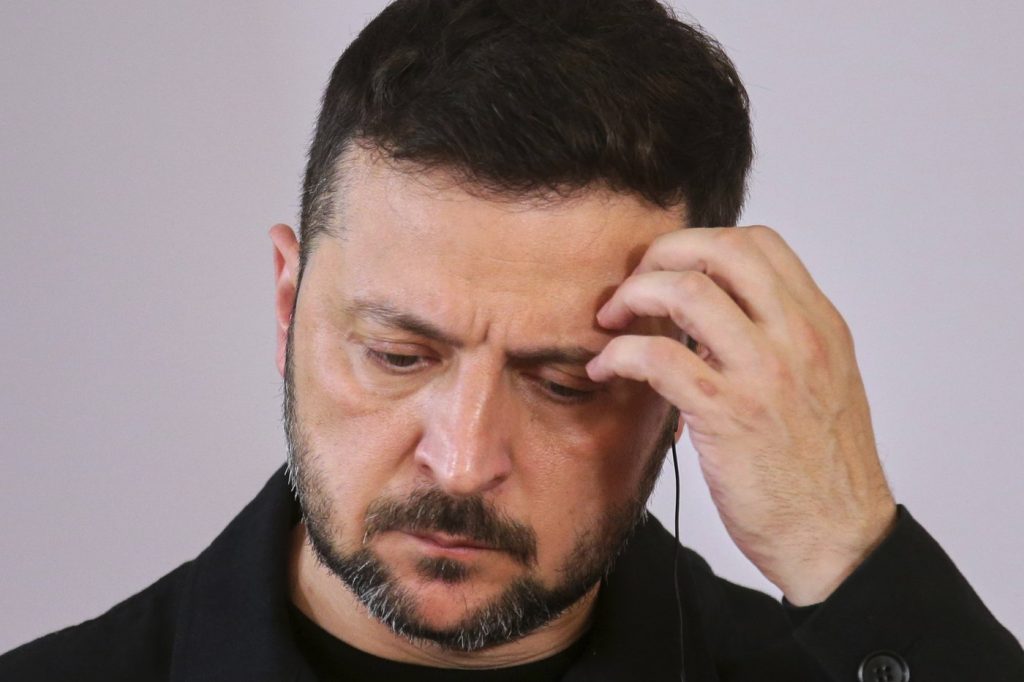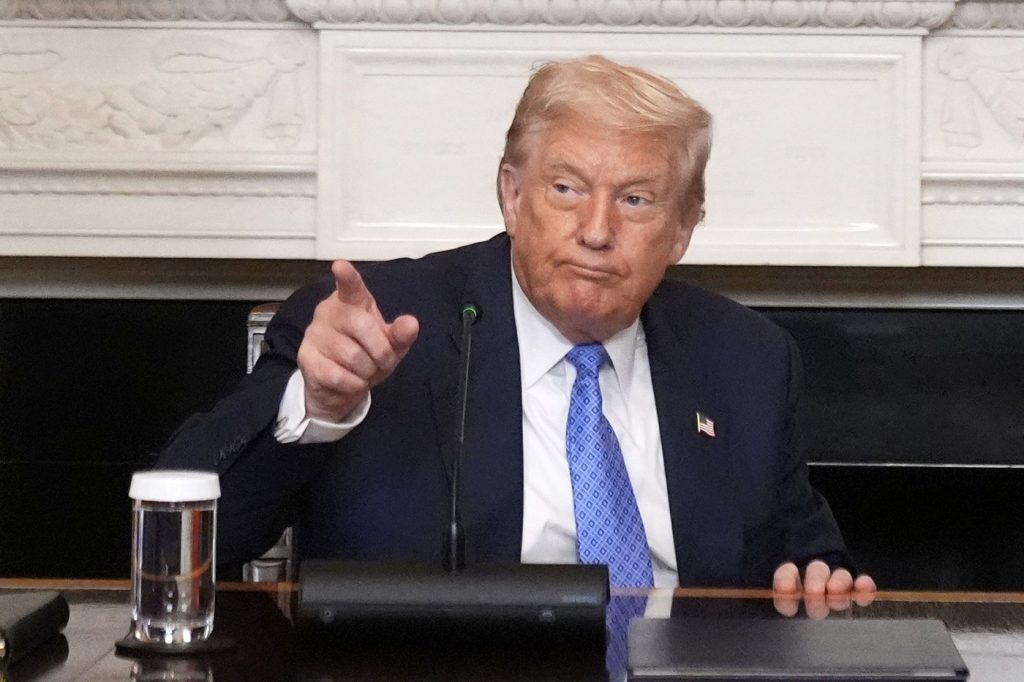KYIV, Ukraine (AP) — Ukrainian President Volodymyr Zelenskyy has firmly rejected the notion of ceding land to Russia as part of a potential peace deal, specifically in response to comments made by U.S. President Donald Trump. Trump had suggested that a resolution to the ongoing conflict might involve "some swapping of territories." Zelenskyy emphasized that Ukraine would not reward Russia for its actions and affirmed that Ukrainians would not relinquish their land to occupiers.
On the same day, European and Ukrainian officials convened in England with U.S. Vice President JD Vance to discuss strategies aimed at resolving the more than three-year-long conflict. These discussions followed Trump's announcement of his willingness to meet with Russian President Vladimir Putin, even in scenarios where Putin would not engage with Zelenskyy. In a post on X, Zelenskyy indicated that the talks had been constructive, highlighting that he had not detected any skepticism from partners regarding the U.S.'s capability to facilitate an end to the conflict. "The President of the United States has the levers and the determination," he stated.
Zelenskyy expressed skepticism about the planned Trump-Putin summit, scheduled for Friday in Alaska. He stated that any negotiations aimed at concluding Europe's largest conflict since World War II must include Ukraine. "Any decisions that are without Ukraine are at the same time decisions against peace," he said, calling such decisions futile.
According to various Ukrainian officials, there may be room for a peace agreement that recognizes Ukraine's inability to militarily reclaim lost territories. The Trump-Putin summit could significantly influence the trajectory of the war, which started with Russia's invasion of Ukraine and has inflicted tens of thousands of casualties. However, the stark differences in the peace conditions proposed by Moscow and Kyiv hinder the possibility of a swift resolution.
Yuri Ushakov, Putin's foreign affairs adviser, commented on the summit, pointing out the significance of Alaska as a meeting location. He suggested that Putin might leverage historical references to bolster his position during discussions, particularly regarding territorial claims. Trump, during his remarks, failed to provide specifics about the proposed "swapping of territories," although analysts speculated that Russia could be willing to concede areas outside its claimed annexed regions.
In Kyiv, public reactions to the concept of territorial concessions ranged from skepticism to reluctant acceptance. Some residents voiced concerns about the implications of ceding territory, while others weighed the immediate need for peace against national pride. Ihor Usatenko, 67, acknowledged the potential loss but suggested that it could be acceptable under certain conditions, such as compensation and reparations. Conversely, Svitlana Dobrynska, 57, firmly opposed any territorial concessions, although she supported halting military operations to save lives.
Before the summit announcement, Trump's attempts to pressure Russia into ceasing hostilities had not yielded progress. His ultimatum involved imposing stricter sanctions and tariffs if Russia did not take steps toward resolving the conflict. Notably, the Kremlin has been steadily advancing its military objectives in Ukraine, causing significant casualties while continuing relentless bombardments of urban areas.
On the ground, violence in Ukraine persists, with two fatalities and multiple injuries resulting from a Russian drone strike on a minibus in Kherson. Furthermore, Ukraine's air force reported intercepting 16 out of 47 Russian drones launched overnight, with and additional missiles also being downed. Russia's Defense Ministry contended that 97 Ukrainian drones were intercepted over its territory overnight, along with 21 additional drones the following morning.
As the conflict escalates, the European Union and key European leaders reiterated their support for Ukraine while advocating for a diplomatic approach that combines active negotiations, assistance to Ukraine, and pressure on Russia to cease its illegal military actions. The ongoing situation highlights the complexity of achieving peace in a deeply fractured geopolitical landscape, making future discussions and negotiations critical.












